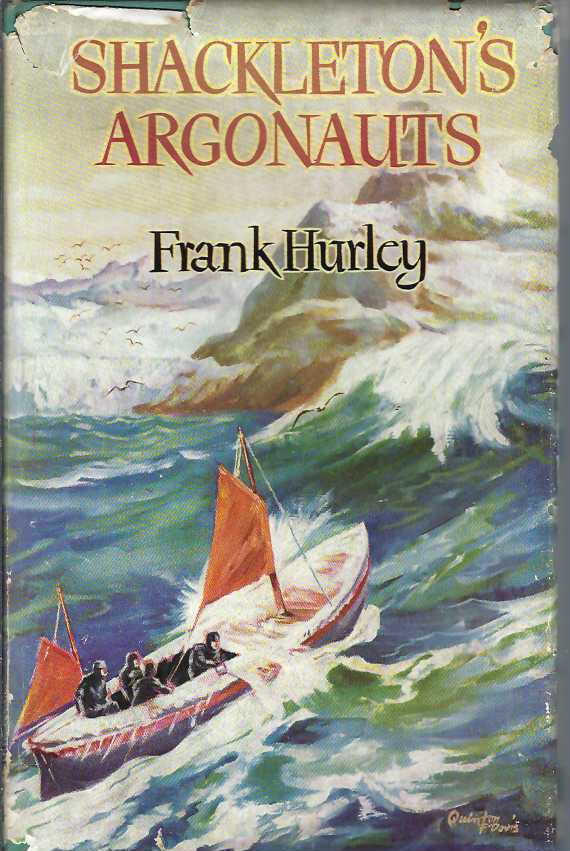xiv, 140 p., 48 p. of plates : ill., plates, ports., map (on lining papers) ; 23 cm. Very Good copy in poor dustjacket. #070522
James Francis “Frank” Hurley OBE (15 October 1885 – 16 January 1962) was an Australian photographer and adventurer. He participated in a number of expeditions to Antarctica and served as an official photographer with Australian forces during both world wars.
His artistic style produced many memorable images. He also used staged scenes, composites and photographic manipulation.
During his lifetime, Hurley spent more than four years in Antarctica.[4] At the age of 23, in 1908, Hurley learned that Australian explorer Douglas Mawson was planning an expedition to Antarctica; fellow Sydney-sider Henri Mallard in 1911, recommended Hurley for the position of official photographer to Mawson’s Australasian Antarctic Expedition, ahead of himself.[5]
Hurley asserts in his biography that he then cornered Mawson as he was making his way to their interview on a train, using the advantage to talk his way into the job.[6] Mawson was persuaded, while Mallard, who was the manager of Harringtons—a local Kodak franchise—to which Hurley was in debt, provided photographic equipment. The expedition departed in 1911, returning in 1914. On his return, he edited and released a documentary, Home of the Blizzard, using his footage from the expedition.[2]
Hurley was also the official photographer on Sir Ernest Shackleton’s Imperial Trans-Antarctic Expedition which set out in 1914 and was marooned until August 1916; Hurley produced many pioneering colour images of the expedition using the then-popular Paget process of colour photography. He photographed in South Georgia in 1917. He later compiled his records into the documentary film South in 1919. His footage was also used in the 2001 IMAX film Shackleton’s Antarctic Adventure. He returned to the Antarctic in 1929 and 1931, on Mawson’s British Australian and New Zealand Antarctic Research Expedition.
